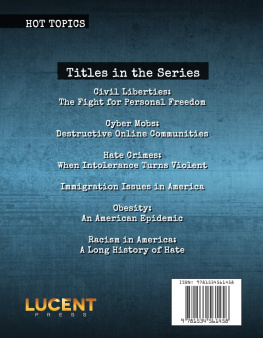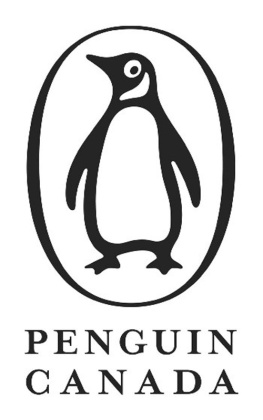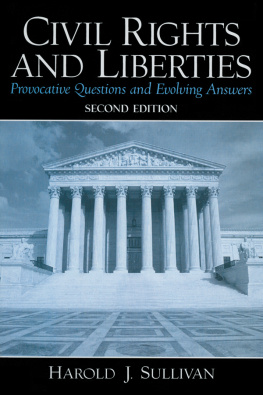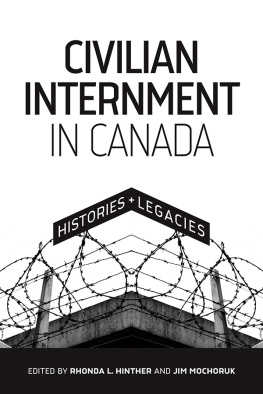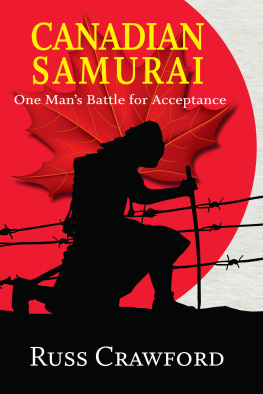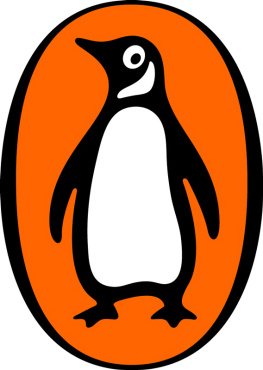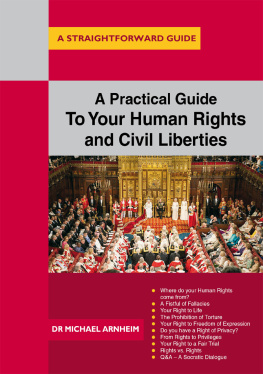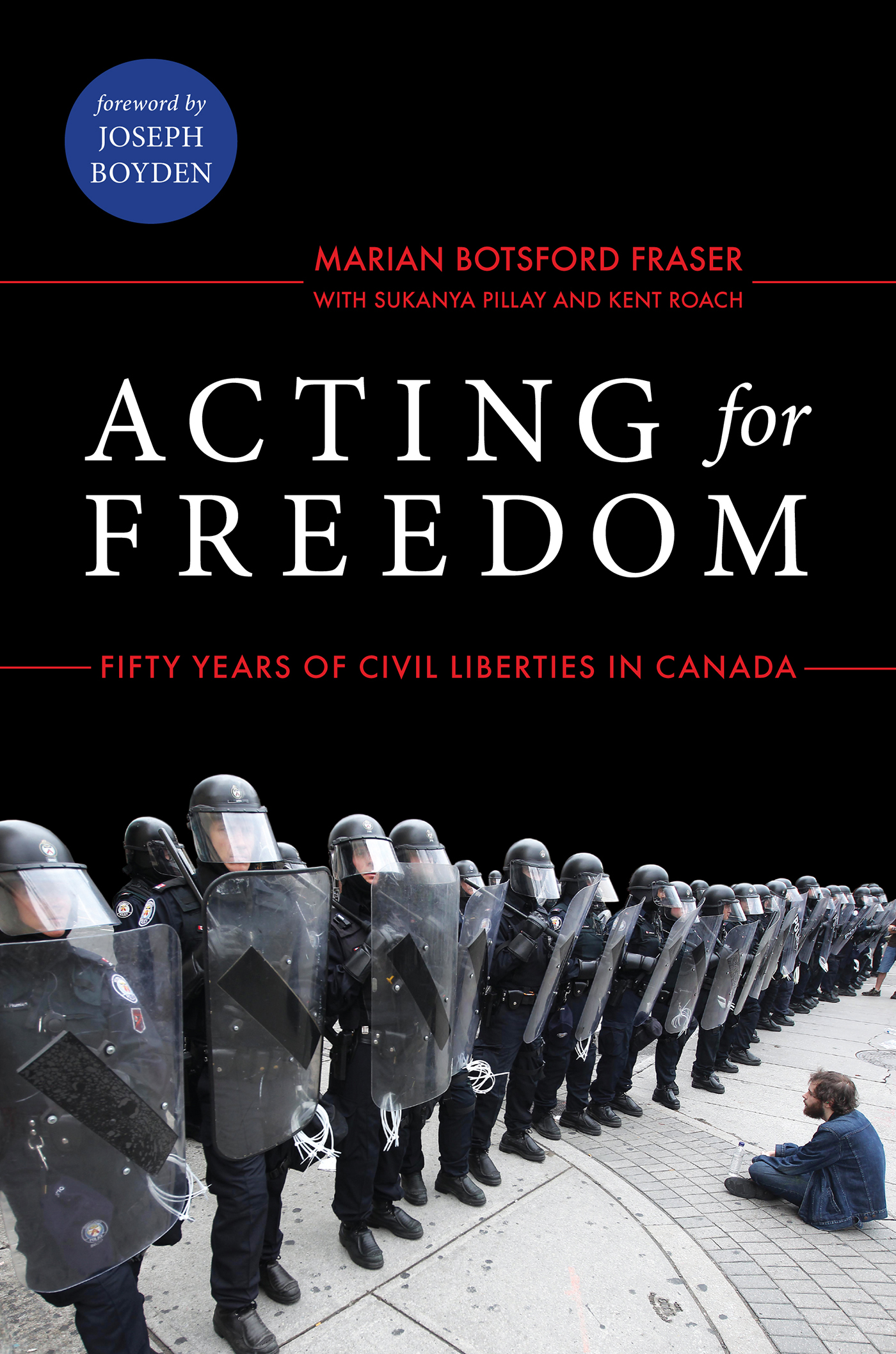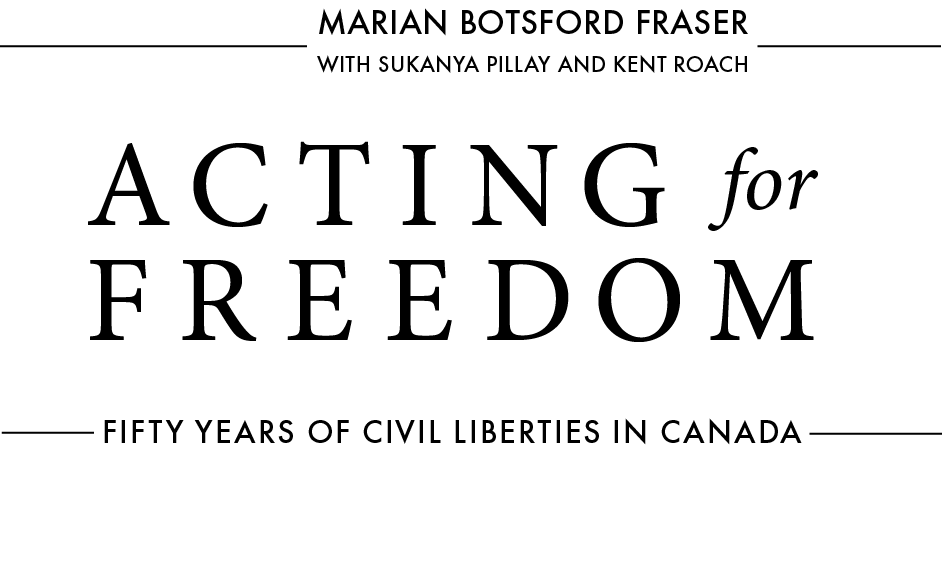In this country, access to an abortion requires a travel agentand money.
(June Callwood, The Globe and Mail, 1986)
The Hallmarks of Hate and the Fate of Section 13 of the Canadian Human Rights Code
Excerpt from the Canadian Immigrants Poem
FOREWORD
Joseph Boyden
I dont think Ill ever forget a certain surprise call that came while sitting out in my backyard one afternoon a number of years ago. I didnt recognize the voice, but I certainly recognized the name of the caller when he announced it.
Hello, he said. This is Alan Borovoy of the Canadian Civil Liberties Association. Is this Joseph Boyden?
Uh, yes, I answered hesitantly, racking my brain for whose civil liberties I might have trampled lately. Id recently told my teenage son he needed to find a part-time job. Might he have ratted me out? My wife was doing the majority of the cooking and cleaning lately as I worked hard to finish a novel. Had she finally been pushed too far? Nothing much else came to mind.
All joking aside, I certainly knew who Alan Borovoy is. Hed been leading one of our nations most important institutions for many, many years, had been acting as general counsel for an organization that not just enriched but strengthened the fabric of our country
We talked about our work and our families and even briefly about the state of the nation before Alan got to the point of his call. Id like you to join the board of the CCLA , he said.
I remember my head spinning, the giddy rush of being asked to join such an amazing and special group, how overwhelmed I was by the offer. But that was only for a few moments, before the true weight of this honour began to rest upon my shoulders. Did I deserve such a thing? Would my every action, both publicly and privately, be under the microscope if I accepted board membership? What did becoming a board member even entail? I pictured being cross-examined by fellow board member Eddie Greenspan while board member Katherine Govier took judicious notes and board member David Cronenberg filmed the proceedings. But just as quickly as these fears and worries clouded my afternoon, the sun literally broke through as I stood in my backyard speaking to Alan, and I thought of my deceased father, a physician and war hero. What would he have done if offered this chance? The answer was simple: of course he would accept it.
Of course I will accept, I blurted to Alan. I dont know what to say except thank you for thinking of me, I offered, or something equally lame-sounding. And that was that. I was officially a board member of the Canadian Civil Liberties Association.
Thats when my own work began. I knew quite a lot about CCLA already. After all, CCLA had challenged Pierre Trudeaus 1970 invocation of the War Measures Act during the FLQ Crisis. CCLA questioned the Canadian governments post-9/11 anti-terror measures. CCLA had always campaigned against laws on hate speech and obscenity, and had rallied against the restoration of capital punishment. Clearly, this was an organization that wasnt afraid to lose popularity contests because of the understanding that civil rights dont just apply at certain times or only to certain people but apply always and to all.
Ill admit that for a while I looked upon this new role of mine as something to be secretly cherished, to be worn as an invisible badge, but that didnt last long either. When I received my first correspondence from CCLA in the mail, I immediately noticed a quotation at the bottom of the letterhead: The freedom of no one is safe unless the freedom of everyone is safe. It was simple. It was straightforward, and yet it was one of the most profound sentences Id ever read. That was it in a gorgeous little nutshell. This wasnt about me at all. This is about all of us.
Ill admit that as a board member, Im not very good at those pesky things called board meetings. I prefer to think of myself as a behind-the-scenes kind of operator. What Ive come to accept as my responsibility is being a spokesperson for CCLA whenever the opportunity presents itself, being a conduit of sorts. I want to fight for the equal rights of my people, the First Nations of this country, as much as I want to fight for my people, the immigrants of this country.
The Canadian Civil Liberties Association turns fifty in 2014. The big 5-0. And I believe this institution has never been more necessary or more needed. With the amazing Sukanya Pillay now at the helm, our ships course is set. And at a time when it often feels like the rights of corporations blatantly trample individual and community rights, when our LGBT communities continue to fight for equality, when our environment is under siege, when our prisons continue to overflow with non-violent offenders, and when police and government feel it is simply a part of the new order when they overreach their authority, it is up to CCLA and all of its members to not just remind the powers that be of this but to go that big step farther and work to defend the rights of the individual. After all, the freedom of no one is safe unless the freedom of everyone is safe. Its this one phrase that grounds me in these turbulentand fascinatingtimes.
And so lets all join Sukanya Pillay and the rest of CCLA in celebrating the many, many accomplishments weve managed in these first fifty years as we gather together to prepare for fifty more. No doubt that the world is quickly changing. But the one constant I try to always remember is that Canada can and should always remain the global light that truly represents what a great democracy is and can be. Yes, weve indeed stumbled at times, and we will continue to sometimes stumble, but its the members of the Canadian Civil Liberties Association who are always there, reaching out a hand as they help to pick us up and brush us off and get us back into the race again.


